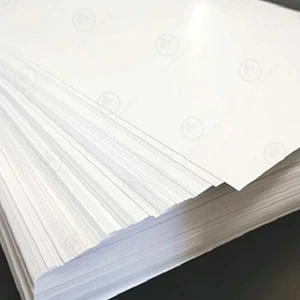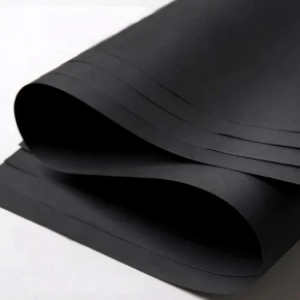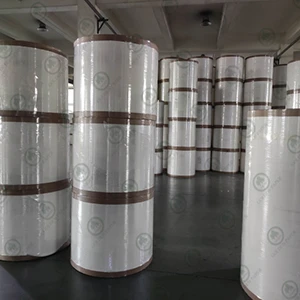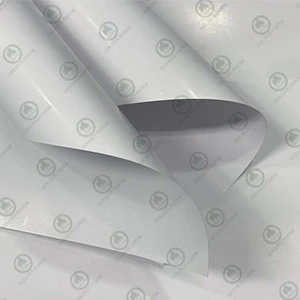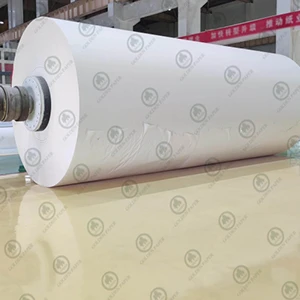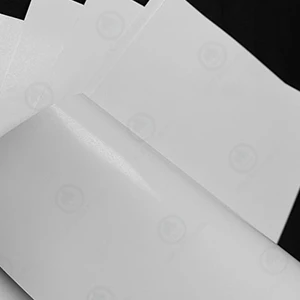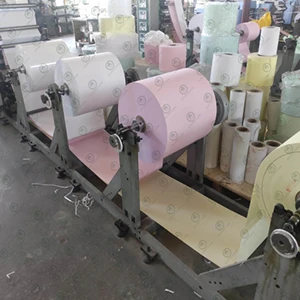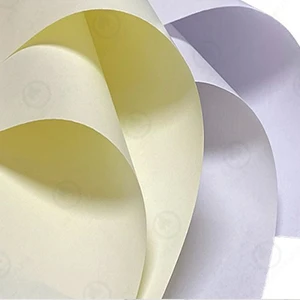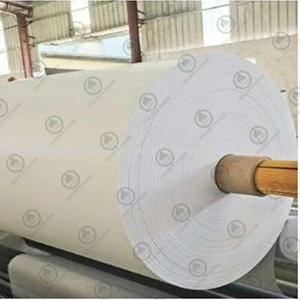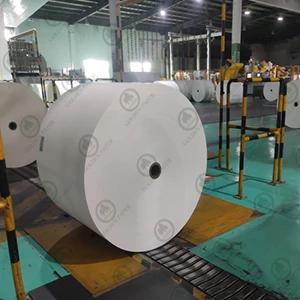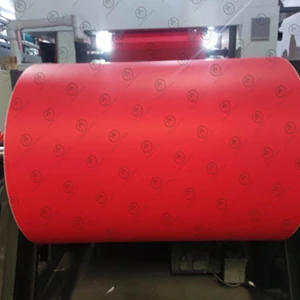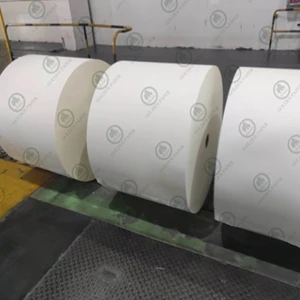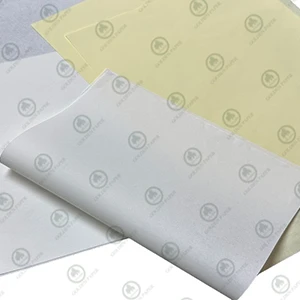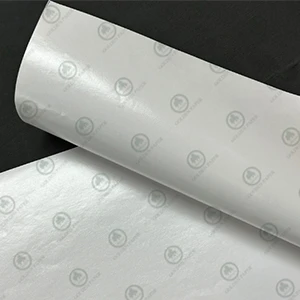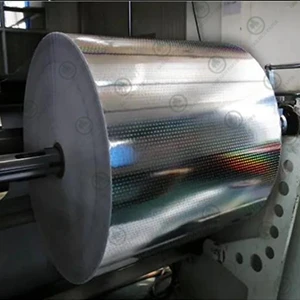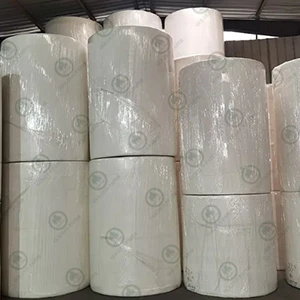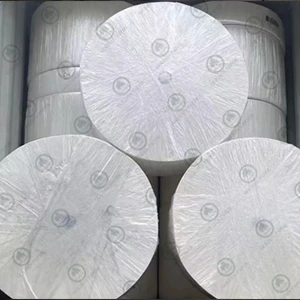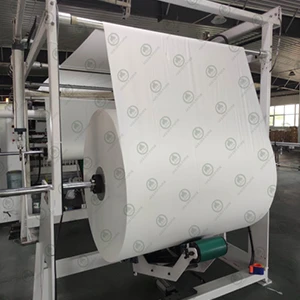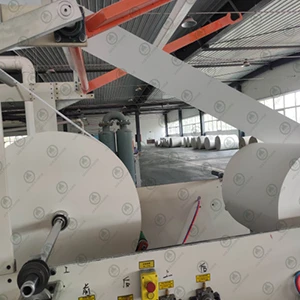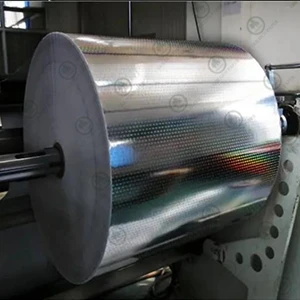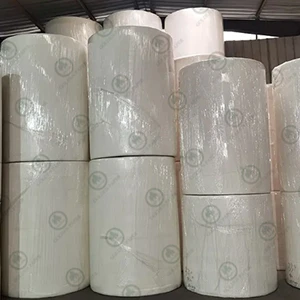Amid the complaints of readers, many book editors have come forward to explain why they choose lightweight paper, patiently popularizing the professional knowledge of lightweight paper, hoping to eliminate readers' rejection of lightweight paper.
The "Publisher Magazine" public account article once divided readers' negative opinions on lightweight paper into three categories, namely:
"Original Sin Theory" - the main reason for this disgust is related to the notoriety of lightweight paper in early domestic pirated books;
"Adaptation Theory" - readers hope that publishers can use different papers according to different books, which is also based on readers' feelings about the use of lightweight paper;
"Frankness Theory" - many readers believe that publishers deliberately confuse readers, do not remind readers of the paper used in their books, and take the opportunity to make profits, making readers feel that it is an unethical behavior of "being both right and wrong".
Many editors or professional articles have also explained readers' negative opinions on lightweight paper. For example, the B station reading UP host "Reading Pills" in his article titled "What is wrong with lightweight paper? 》, he enumerated the seven sins of light paper in the minds of readers, and explained them one by one as a person in the publishing industry ("Reading Pill" is Jiang Ling, the owner of Chongqing Daofeng Bookstore). But Jiang Ling's explanation, like other voices defending light paper, is regarded by many readers as an act of "whitewashing light paper and publishers."
Another UP host of B station, "-Huahua is Fafa", pointed out in his video "Light Paper is Not Guilty, But You Make Me Sick", "The real reason for readers' anger is that publishers and related practitioners treat readers as fools." The main argument behind it is the three attitudes mentioned above.
There are two groups behind the light paper controversy: one is the publishers and publishers, and the other is ordinary readers. As many comments have pointed out, the different attitudes towards light paper are actually the contradictions and estrangements between the two groups.
As an ordinary reader, a little observation will find that the price of books has been rising quietly since a few years ago. The increase in the price of some books (such as the price of some books starting to exceed 100 yuan) will suddenly make people realize that book consumption has gradually become an expense that needs attention.
Faced with this change, many readers first questioned the publishing institutions. At the same time, the publishing institutions said that this was due to the continuous increase in a series of hard costs (such as paper prices, labor costs and copyright fees, etc.), coupled with the challenges of other competitors (e-commerce, live streaming, etc.), and had to make such adjustments. In order to protect their shrinking profit margins, publishers can only find new ways to try not to harm the interests of readers.
This adjustment, which was constrained by changes in the overall publishing environment, eventually broke out on the issue of light paper. The debate between readers and publishers directly revealed the crisis, difficulties and helplessness encountered by both sides. For readers, the price of books is rising, but light paper is reducing the quality of books, which is difficult for them to accept.
Stills from the documentary "Book Lovers".
On the one hand, this is related to the development process of book publishing in my country. The number of books published before the reform and opening up was limited, while the number of books published now has exploded; on the other hand, everyone's definition of books still inherits the tradition of elite culture to a large extent. "Books" and "culture" are naturally synonymous.
Therefore, many readers are dissatisfied with the publishers' blind pursuit of profits and the use of light paper, which not only leads to the deterioration of book quality, but more importantly, directly offends the image of books in the minds of many readers.
Here, we encounter a problem that many publishers probably ignore, that is, when they use light paper in the face of rising publishing costs and consider creating a new reading experience, they ignore the cultural symbolic significance of books themselves.
Although we rarely see the tendency to sanctify books directly (similar views still appear from time to time in discussions about light paper), respect for books has subtly permeated our subconscious and deeply integrated into the blood of Chinese traditional culture.
Therefore, many publishers and publishing houses have found that no matter how professionally they explain that the current light paper is not the inferior counterfeit "light paper" of the early years, it is difficult for readers to accept it.
2. Discourse battle between readers and publishers
Another important argument that publishers use to defend light paper is the specific reading experience it brings, such as light paper, easy to carry, easy to flip through, and environmentally friendly and eye-protecting. But why do readers just not buy into these obvious advantages?
This may be because when you point out that light paper has one advantage, readers can immediately find another disadvantage, and these disadvantages more directly affect the reader's reading experience. Putting aside the indiscriminate attacks on different types of light paper, it is obvious that light paper has odor, is easy to turn yellow, and is rough and difficult to write on.
Among many readers' dissatisfaction, we will also find that the new reading experience imagined by publishers actually belongs to a specific type of book. They seem to have overlooked that books themselves cannot be quickly updated like other consumer goods, especially fast-moving consumer goods.
Focusing on the commodity attributes of books and forgetting its attributes as a carrier of a certain culture and knowledge will inevitably make publishers miss the opportunity to understand readers' needs.
Stills from "Proofreader Girl Etsuko Kono".
In Douban groups like "Shandao Group", people still have a certain "counter-trend" mentality towards the publication of paper books.
With the rise of e-reading, people have begun to imagine a future without paper books. When everything began to enter the digital world, paper books gradually acquired another cultural connotation, that is, a cultural material form that may disappear and inherit ancient traditions or a specific stage in human civilization.
When publishers are confined to increasingly squeezed profits and try every means to create a compromise, readers hope to protect the book form they are familiar with or identify with in this change.
This does not mean that readers are stubborn. Many of them are aware of the advantages of light paper in some aspects and understand the crisis faced by publishers. Therefore, they hope that publishers can learn from the Western dual-line publishing model - general binding and hardcover - to alleviate readers' dissatisfaction with the wanton use of light paper.
Many publishers and publishers hope that readers' dissatisfaction with light paper can be solved through the popularization of professional knowledge. But this obviously has a poor effect, because a large part of readers' dissatisfaction with light paper is not directed at paper, but may be directed at discussions on complex issues such as "what kind of books are good", "what are you buying when buying books", and "what does it mean to buy paper books or own books". In this era of general pessimism about paper books, these issues have become particularly important.
Stills from "The Compilation of Boats".
In other words, many professional publishers who defend light paper are not discussing issues on the same level as readers.
Publishing houses try to create a new reading habit, experience and feeling for readers, and to build a discourse power about the style and physical properties of good books. Such innovations must take into account readers as consumers, but readers' reading experience and cultural feelings are not the core considerations for their publishing and manufacturing of books.
At present, books are indeed just one of thousands of commodities, and private book publishers must take cost and profit as the most important considerations, although they also have their own cultural feelings and pursuits for books. Therefore, when they face the readers' criticism, they are in an extremely awkward situation:
Purely commercial operations will cause readers to despise them and accuse them of "selling culture at a low price"; but if they stick to the traditional marketing model, the cost may be high, the sales volume may be poor, and it may be difficult to continue.
3. Shouldn't culture be used to make profits?
In our daily expenses, books are always a very limited expense. People buy milk tea, movie tickets, shoes, clothes, etc. every month, no matter which one, far exceeds the consumption of books.
This is the contradiction. People seem indifferent to the price increase of other daily consumer goods, but are very sensitive to the price change of books, and accuse publishers of profiteering with the idea that "culture should not be used to make money".
On the one hand, books have gained infinite aura because they are the carriers of culture, but on the other hand, this has become a tight ring to suppress the price of books. How to solve this paradoxical contradiction is a problem that publishers have to face.
Stills from the first season of "But There Are Books".
The dual-line publishing model is a way. Many popular literary works are published in paperbacks, but their paper, binding, design and reading experience are not good, more like fast-moving consumer goods. The paper and binding design of hardcover books are very particular, but the price has also increased. The price of many hardcover books has exceeded the 100-yuan and 200-yuan mark.
However, the dual-line publishing model from abroad is based on a complete set of differentiated reading groups, consumer markets and concepts. Since the current domestic book market cannot achieve product differentiation between "reading users" and "collection users", we can only learn from specific methods or concepts and take into account the needs of these two types of readers.
However, with the rise in prices of various hard indicators and the discount challenges of new sales channels such as e-books and e-commerce, it seems that it is becoming increasingly difficult to balance the reading experience and book quality.
Stills from "The Catcher in the Field".
My biggest impression of light paper is that it is difficult to take notes directly on it. It seems that there is no mark with a pencil, but it will be blurred with a water pen. The paper is thin and easy to seep to the other side. Many times, the selection and publication of books are in the hands of publishers, and the choice of paper, binding and design is not controlled by readers, so book buyers inevitably feel frustrated and helpless.
For this reason, readers' long and tenacious crusade against lightweight paper hides their struggle for the right to speak in book publishing and their protest against the long-term neglect of reading needs.
The debate over lightweight paper may also foreshadow a new future. Both readers and publishers have to rethink the meaning of books in this debate. Books, as an important carrier of human culture and knowledge, may undergo changes and creations when facing new challenges, which have already begun to emerge in the discussion about lightweight paper.
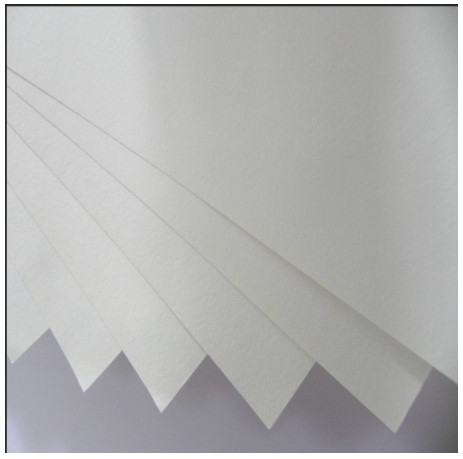
 GOLDEN PAPER
GOLDEN PAPER
 EN
EN
 fr
fr  de
de  es
es  it
it  ru
ru  pt
pt  ar
ar  vi
vi  tr
tr  id
id 

